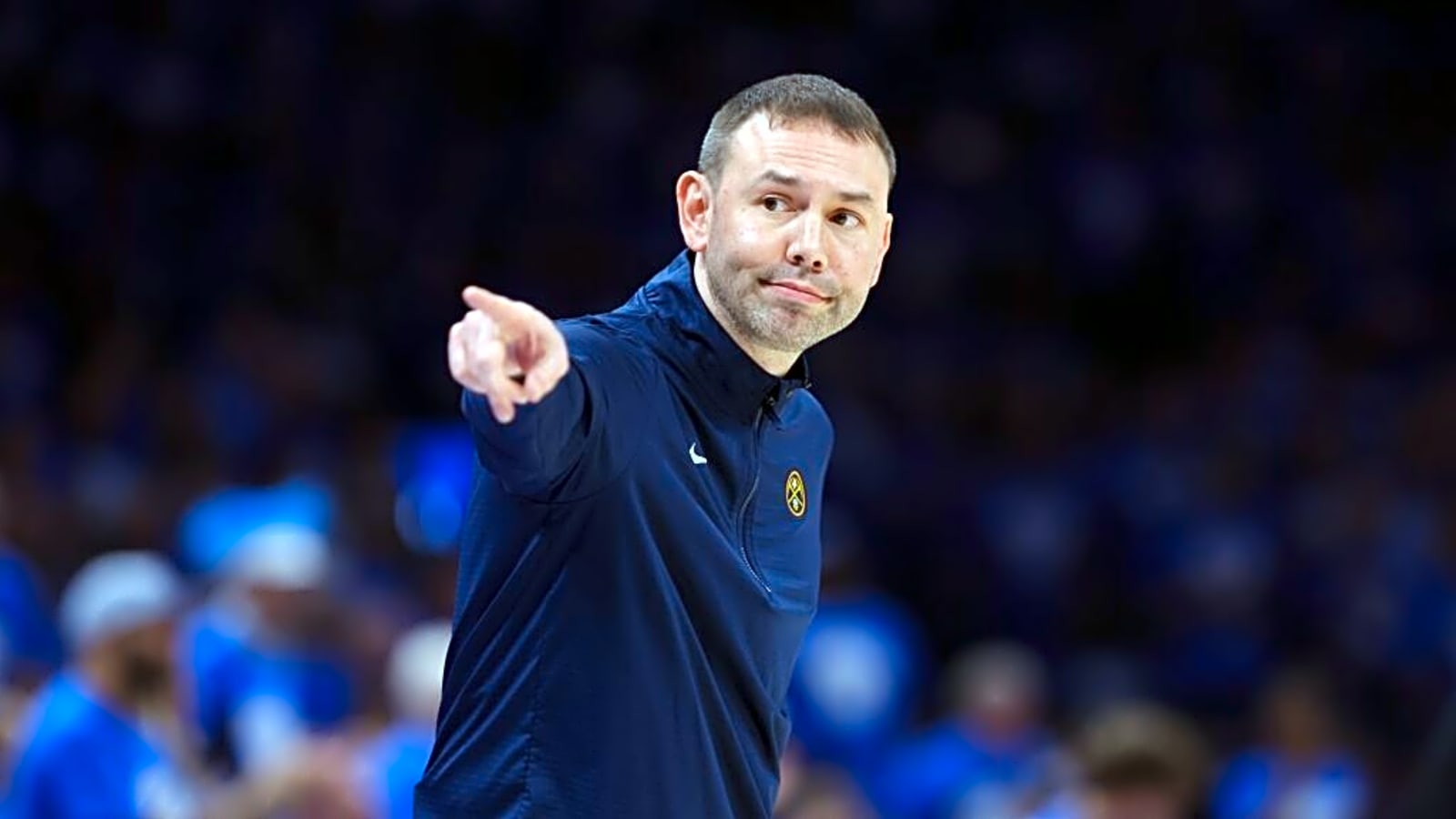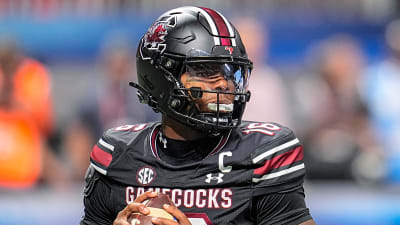
Few things in life unfold exactly as planned. For David Adelman, becoming an NBA head coach was likely a lifelong dream. It would allow him to follow in his father’s footsteps. But he probably never imagined his once-in-a-lifetime opportunity would arrive the way it did.
The Denver Nuggets, frustrated by a disappointing regular season, made a shocking decision to part ways with head coach Michael Malone. That sudden shake-up gave Adelman the extremely rare chance not just to become a head coach, but to lead a championship-caliber team.
This opportunity came under truly unprecedented circumstances. Almost no team in NBA history has fired its head coach so late in the regular season. The timing left little optimism that the Nuggets could make a deep playoff run, or win it all. That was despite having arguably the best player in the world on their roster.
Stepping into that kind of chaotic situation is no easy task. Just look at Memphis, where Toumas Iisalo, a more accomplished head coach (overseas), struggled to leave a mark after taking over in similarly unstable conditions.
Add to that the fact that Adelman’s promotion could have been seen with a quite cynical viewpoint, given the Kroenke ownership’s reputation for cutting corners on off-court spending. He could have been viewed as a budget-friendly placeholder, not a long-term solution capable of leading a team with championship ambitions. But Adelman has destroyed that potential narrative.
Coach Adelman More Than Earned His Promotion
Adelman didn’t just steady the team—he elevated it under intense pressure. More than simply providing a fresh voice for a veteran locker room that may have grown weary after nearly a decade under Michael Malone, Adelman showcased real tactical skill and adaptability. That was especially seen during the second-round series against the Thunder.
Let’s be honest, the former assistant didn’t need to overhaul anything. The Nuggets’ offense still runs through Nikola Jokic, and that won’t change as long as the Serbian superstar remains in Denver. As for the early defensive improvement, it stemmed more from the veteran core flipping the switch into playoff mode than from any major schematic shift. After cruising through much of the regular season, the team locked in defensively as soon as the playoffs began. Even in the final stretch of the regular season, Jokic in particular showed a noticeable uptick in defensive intensity even before the Malone firing.
That is why in the first-round series against the Clippers, Adelman didn’t need to reinvent the wheel. It was a high-level battle between two great teams. While Adelman managed the moment admirably by making timely adjustments and smart rotation calls, it wasn’t a series that cemented his case as a long-term head coach. If anything, Tyronn Lue had the bigger tactical impact. His small-ball lineups gave Jokic real problems at times, and key decisions, like inserting Nicolas Batum in Game 6 in the second half into the starting lineup, played a pivotal role in making this a hard-fought seven-game series.
Still, Adelman didn’t look completely outmatched and proved he could hang with a championship-winning coach on the other sideline. But his defining performance—the one that truly showcased his coaching acumen—came in the second round.
Coaching Masterclass Against the Thunder
This series against Oklahoma City was his magnum opus. After Games 1 and 2, when OKC seemed to score at will, coach Adelman had no choice but to adjust quickly.
What followed was nothing short of remarkable. He decided to lean into a zone defense that the Nuggets deployed for most of the remaining series—a bold and highly effective tactical shift. It also marked a significant departure from the aggressive pick-and-roll coverage that Michael Malone had embedded into this team for many years, and any previous attempted departure from the tried and true system ended in a complete disaster, until now at least. It did not look like it at first though, since the early returns were rough.
Adelman had already introduced the zone in Game 1, but it looked like a total mess, riddled with miscommunications and defensive breakdowns. It took a miraculous comeback for the Nuggets to steal Game 1, but OKC still looked like the far superior team—a belief only reinforced by their complete dismantling of the Nuggets in Game 2.
Lesser basketball minds, this writer included, would have scraped the zone and gone back to the known commodity of the high pick-and-roll coverage. But Adelman didn’t. He stuck with it, made the right tweaks, and trusted his players to figure it out.
By Game 4, the zone started clicking—and it kept working until Game 7. That adjustment gave Denver a real chance to win the series. The only real issue that cost them were the offensive struggles, which were more down to suboptimal roster construction than any coaching issues.
There are Still Slight Things to Improve
Of course, not everything went perfectly—after all, the Nuggets still bowed out in the second round. For the first time in years, Jokic looked mortal, struggling through one of his least efficient stretches, especially in the series against the Thunder. While much of that can be attributed to the elite defensive work of Ivica Zubac and Isaiah Hartenstein, Denver didn’t do enough to ease the burden on their superstar. There was also a noticeable lack of set plays designed to give the Serbian easy looks—things like baseline guard screens, which under Michael Malone were one of the most effective plays to get Jokic going, were completely missing.
Coach Adelman’s decision to leave the Joker in for extended stretches without any rest also proved costly at times. While the fear of the dreaded non-Jokić minutes is understandable, even he has his limits, and fatigue clearly played a role in tough losses, like Game 4 against the Clippers or Game 5 against the Thunder. Still, these struggles were less about coaching and more about roster limitations and lingering injuries. Michael Porter Jr. and Jamal Murray battled through physical and health setbacks respectively, leading to inconsistent play, while the bench failed to provide meaningful support throughout the postseason.
Coach Adelman is More than Capable of Stepping into Malone’s Footsteps
Adelman’s commitment to the zone defense in the second round drew some clear parallels to Malone’s past insistence on sticking with the high pick-and-roll coverage due to Jokic’s defensive limitations, even when early results were underwhelming. Of course, Adelman didn’t face nearly the same level of criticism during the course of one series that Malone once did—especially back in 2018, when many, myself included, were calling for a coaching change after the team missed the playoffs. And yet, much like Malone back then, Adelman’s vision paid off. His willingness to stick with the zone almost propelled a flawed, injury-hampered Nuggets team past a Thunder squad that has since looked like a juggernaut throughout the rest of the playoffs. That context makes Denver’s performance—and Adelman’s coaching—all the more impressive.
David Adelman has earned the right to lead this team going forward. With a full offseason and training camp ahead of him as the official head coach, it will be exciting to see how far he can take this group.
More must-reads:
- Thunder’s Nikola Topic undergoing treatment for testicular cancer
- Victor Wembanyama leads Spurs to best start in franchise history
- The 'Most 2,000-point NBA seasons' quiz
Breaking News
Trending News
Customize Your Newsletter
 +
+
Get the latest news and rumors, customized to your favorite sports and teams. Emailed daily. Always free!








